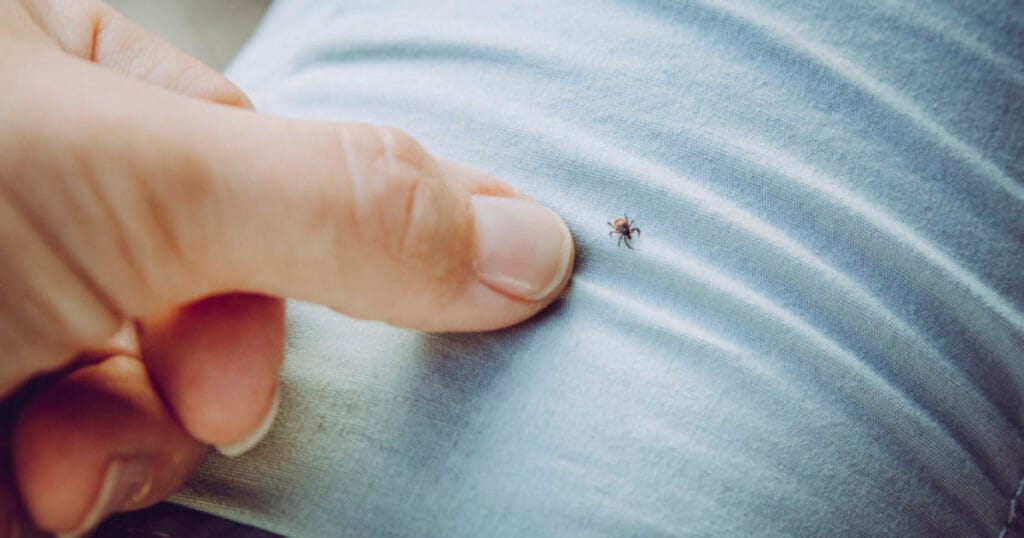
Tick bites are common across the UK, especially in spring and summer.
Whether you’ve been walking in the countryside or spending time in the garden, it’s important to know what a tick bite looks like, how to treat it, and when to see a doctor.
What Are Ticks?
Ticks are tiny blood-sucking parasites found in grassy and wooded areas throughout the UK.
They’re most active between March and October, and can carry infections such as Lyme disease. Ticks can attach to both humans and animals, often going unnoticed.
How to Identify a Tick Bite
Most tick bites are painless and don’t cause immediate symptoms.
You may notice:
- A small red bump
- Mild irritation
- A tick still attached to the skin
In some cases, the bite can lead to early signs of Lyme disease, including:
- A red circular rash (often described as a bull’s-eye rash or erythema migrans)
- Fever or chills
- Muscle and joint aches
- Headaches
- Swollen glands
- Fatigue
When to Worry: Red Flag Symptoms
Contact a GP or healthcare professional if:
- The rash expands or appears 3–30 days after the bite
- You feel unwell (flu-like symptoms) after a tick bite
- The tick has been attached for over 24 hours
- Part of the tick remains in the skin
- The bite site becomes red, swollen, or hot to touch
Tick Bites and Lyme Disease in the UK
Lyme disease is an infection caused by the Borrelia bacteria, passed on by infected ticks.
It is most commonly reported in:
- South of England
- The New Forest
- Lake District
- Scottish Highlands
- Exmoor
- Parts of Wales
Early diagnosis and treatment with antibiotics is key to preventing long-term complications like joint pain, nerve inflammation, or chronic fatigue.
How to Remove a Tick Safely
- Use fine-tipped tweezers to grasp the tick close to the skin.
- Pull upwards slowly and steadily – avoid twisting.
- Clean the bite area with antiseptic or soap and water.
- Monitor the area over the next few weeks.
⚠ Do not use heat, oils, or creams to remove ticks.
How to Prevent Tick Bites
Reduce your risk of a tick bite by following these tips:
- Wear long sleeves and trousers in grassy or wooded areas
- Tuck trousers into socks or boots
- Use insect repellent with DEET
- Stay on clear paths when hiking or walking
- Check your skin (especially armpits, groin, back of knees, and scalp) after being outdoors
- Check pets regularly
Tick Bite Treatment at Our Private GP Clinic
At our clinic, we offer:
- Tick removal and wound care
- Assessment for Lyme disease
- Blood tests, if indicated
- Antibiotic prescriptions
- Same-day appointments and private referrals if needed
Book a Private GP Appointment Today
If you’ve been bitten by a tick or you’re concerned about symptoms of Lyme disease, we’re here to help.
✔ Same-day appointments available
✔ Discreet, expert care
✔ Fast access to testing and treatment
















